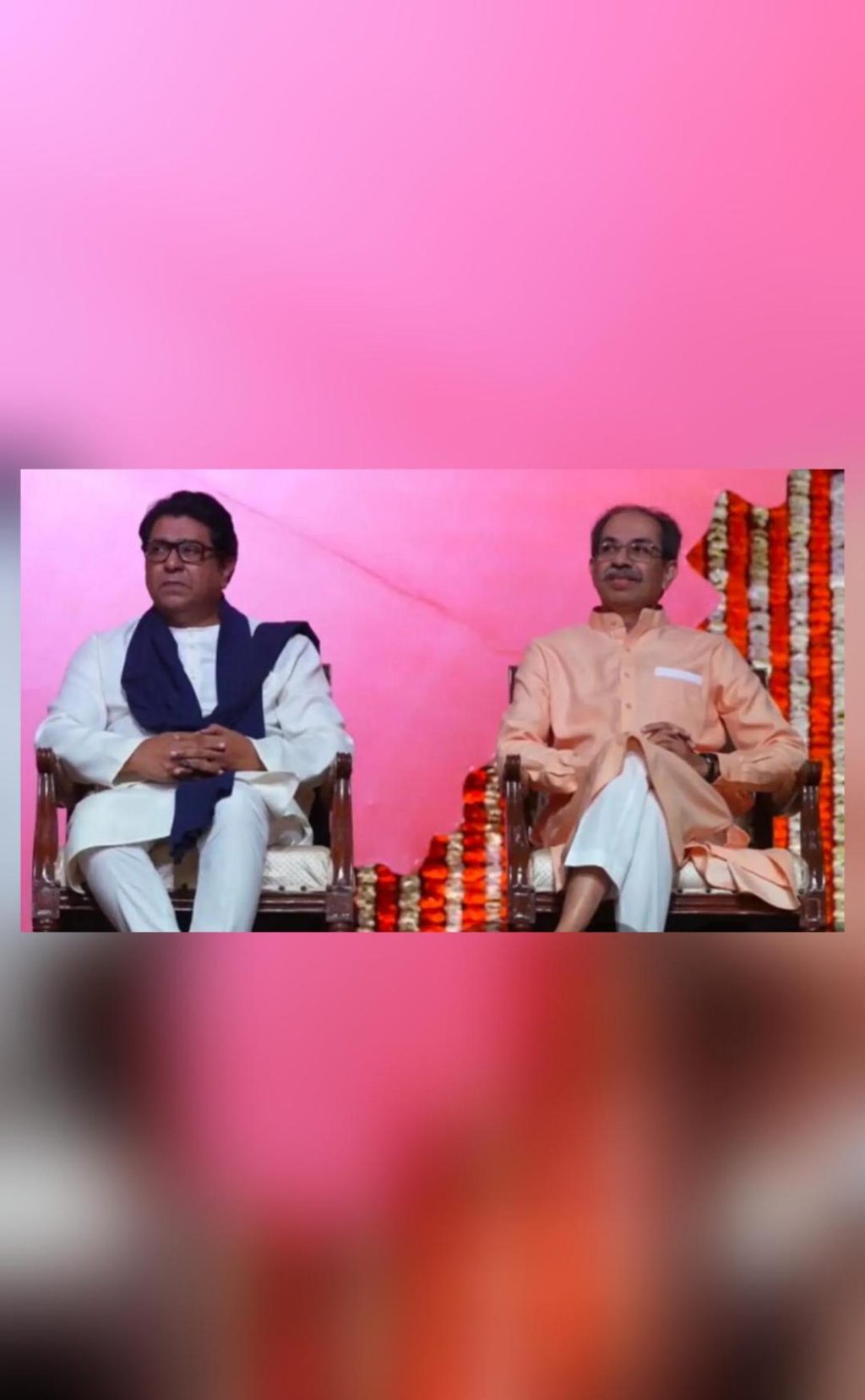
Neither Hindi nor Marathi, Uddhav & Raj just love family: BJP
The recent joint rally held by Shiv Sena (UBT) chief Uddhav Thackeray and MNS president Raj Thackeray to celebrate the Maharashtra government’s rollback of the three-language policy has sparked a heated debate in the political arena. The two leaders, known for their strong regional sentiments, were seen embracing each other and praising the government’s decision. However, their joy was short-lived as BJP leader Gaurav Vallabh soon took to social media to express his disdain for the duo’s sudden bonhomie.
In a tweet, Vallabh stated, “Stop hiding behind Hindi and Marathi. You neither love Marathi nor Hindi, you just love your family.” His comment was a clear indication of the BJP’s stance on the issue, which is that the two leaders are only coming together due to political compulsion.
The three-language policy, which was introduced by the previous government in 2020, aimed to make Hindi, Marathi, and English compulsory up to Class 8. However, it faced widespread opposition from various quarters, including the Marathi Manoos and the Hindi-speaking communities. The Maharashtra government, led by the Shiv Sena, had initially opposed the policy but later decided to roll it back.
The BJP, which has traditionally been aligned with the Hindi-speaking communities, had always been opposed to the policy. The party’s stance was that the policy was intended to promote Hindi at the cost of other languages, including Marathi. Vallabh’s tweet was a clear expression of this sentiment, with the BJP leader accusing Thackeray and Thackeray of using the issue to further their own family interests.
It is worth noting that the relationship between Uddhav Thackeray and Raj Thackeray has been strained in the past. The two leaders have been involved in a bitter rivalry, with Thackeray patriarch Bal Thackeray’s legacy serving as a major point of contention. However, in recent months, there have been signs of a thaw in their relations, with the two leaders working together on various issues.
The joint rally held by Thackeray and Thackeray was seen as a major victory for the Maharashtra government, which had faced intense opposition from various quarters over the three-language policy. The government’s decision to roll back the policy was seen as a significant concession to the Marathi-speaking communities, which had been demanding its withdrawal.
However, the BJP has been quick to point out that the government’s decision was not a victory for the people of Maharashtra, but rather a desperate attempt to placate the Thackeray brothers. Vallabh’s tweet was a clear expression of this sentiment, with the BJP leader accusing the government of being driven by political expediency rather than a genuine commitment to the welfare of the people.
The controversy surrounding the three-language policy is just the latest chapter in the ongoing debate over the role of Hindi and Marathi in Maharashtra. The issue has been a major point of contention in the state, with various groups demanding greater recognition for their respective languages.
The Shiv Sena, which has traditionally been seen as a champion of Marathi, has been accused of being soft on Hindi. The party’s willingness to roll back the three-language policy has been seen as a major concession to the Hindi-speaking communities, which have long been a major source of support for the party.
In contrast, the BJP has been accused of being overly aggressive in its promotion of Hindi. The party’s decision to introduce the three-language policy was seen as a major affront to the Marathi-speaking communities, which have long been wary of Hindi’s growing influence in the state.
The controversy surrounding the three-language policy is likely to continue for some time, with various groups demanding greater recognition for their respective languages. The BJP’s accusation that Thackeray and Thackeray are only coming together due to political compulsion is likely to be a major point of contention in the debate.
Ultimately, the issue is a complex one, with various groups having legitimate concerns about the role of Hindi and Marathi in Maharashtra. The government’s decision to roll back the three-language policy is likely to be seen as a major victory for the Marathi-speaking communities, but it also raises questions about the government’s commitment to promoting the language.
In conclusion, the controversy surrounding the three-language policy is a complex issue that is likely to continue for some time. The BJP’s accusation that Thackeray and Thackeray are only coming together due to political compulsion is likely to be a major point of contention in the debate. However, the issue is ultimately about the welfare of the people of Maharashtra, and it is up to the government to ensure that the interests of all groups are protected.
News Source:






